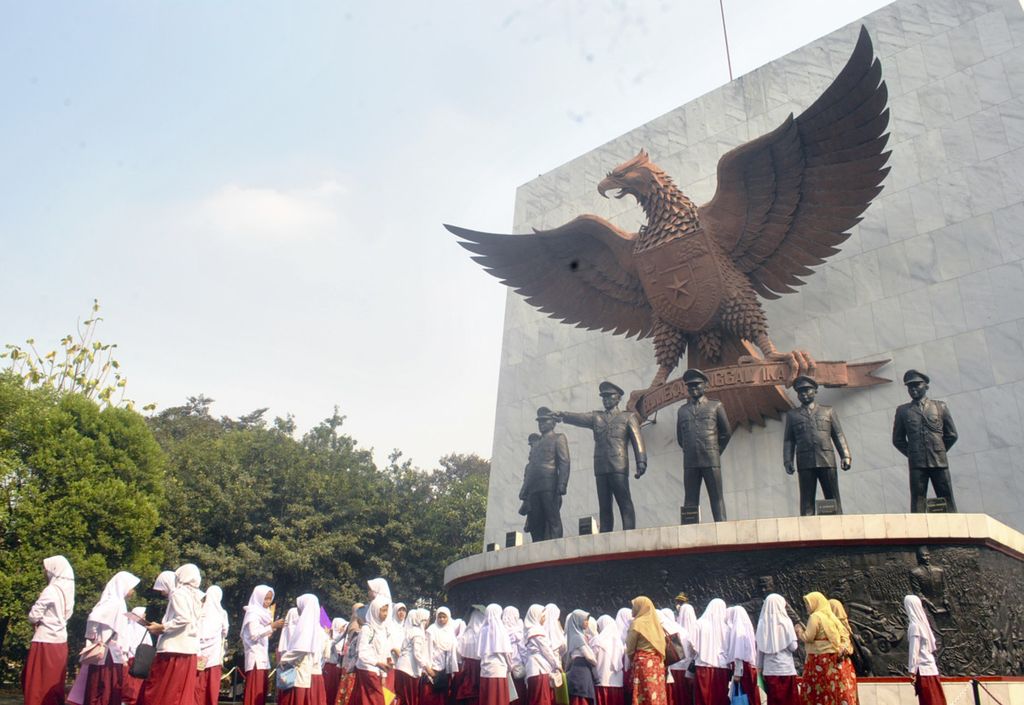Culture, the Path to Reconciliation
The 30 Sept. 1965 Movement, or G30S, remains a painful event for the Indonesian nation.

A group of elementary school students visit the Pancasila Sakti Monument on Oct. 2, 2018 in Lubang Buaya, Jakarta. The school trip was held to coincide with Pancasila Sanctity Day, which is celebrated in remembrance of the heroes of the Indonesian National Revolution.
The 30 Sept. 1965 Movement, or G30S, remains a painful event for the Indonesian nation.
The pain is felt not only by the families of the victims of the events leading up to and during the incident, but also by victims of the post-G30S period. All attempts to open the way towards reconciliation have been met with pros and cons. Since the 1998 Reformasi (reform) movement, efforts at reconciliation have pursued a political course, including through the National Commission on Human Rights (Komnas HAM), the international court and other, more political means. However, the more intense the endeavor, societal conflicts have grown even stronger.